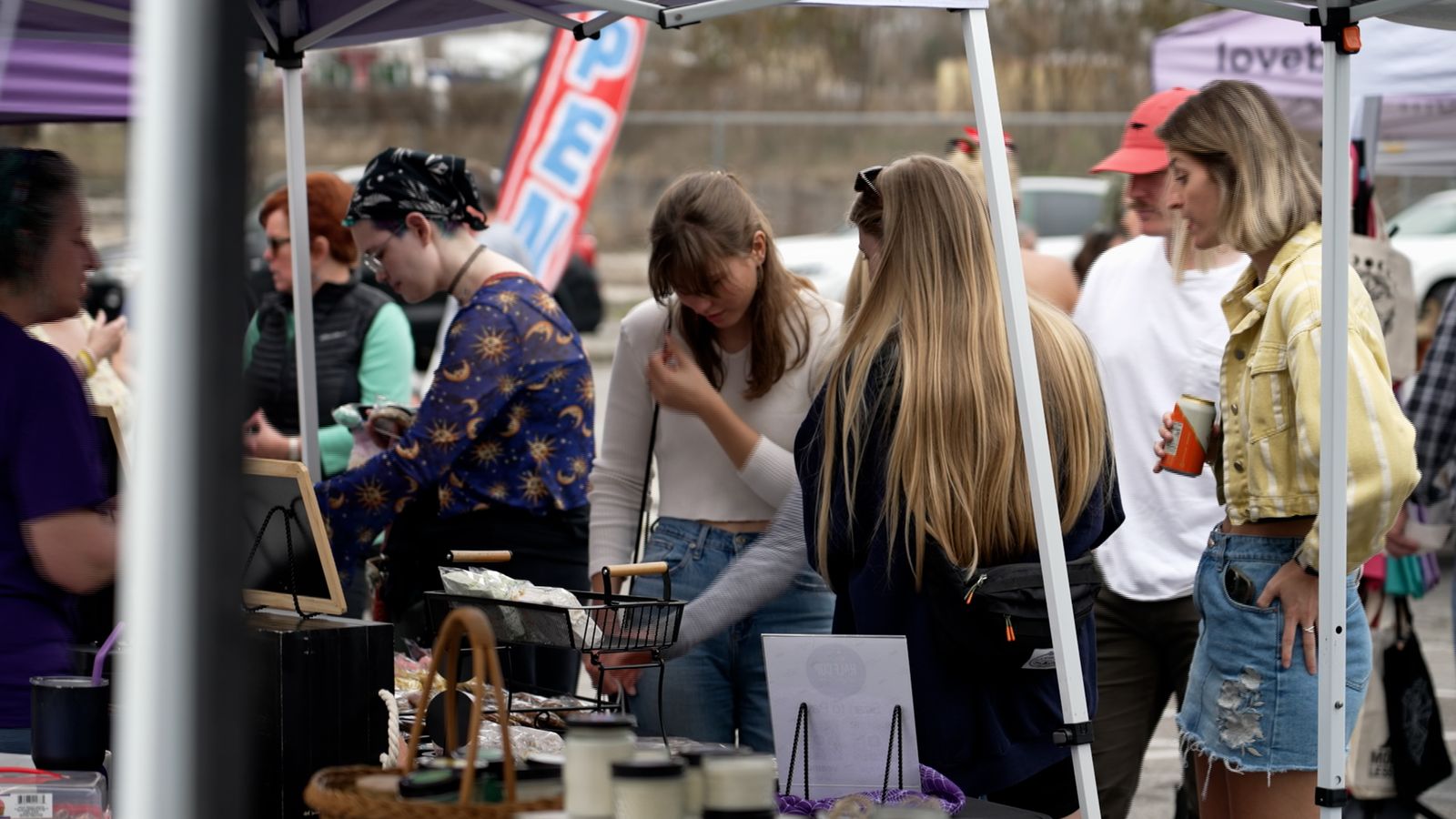In a market, in a neighbourhood, in a city like this, the election will be decided.
The ‘Women’s Market’, by the river in Wilmington, is a showcase for “female makers” of this port city in North Carolina.
November’s presidential election will turn on the outcome in this swing state and half a dozen others like it, battlegrounds where the result isn’t a foregone conclusion.
If Super Tuesday doesn’t signal a change in the expected line-up, it will be Donald Trump versus Joe Biden. They and their politics will dominate the next eight months, having dominated the last eight years.
Explained: What is Super Tuesday?
At the Wilmington market, we talked about reproductive rights.
It’s an issue at the heart of US electoral politics, supercharged when Trump-appointed Supreme Court judges overturned Roe v Wade and restricted access to abortion nationwide.
It has driven the Democrat vote ever since and Republicans have suffered at the polls – most notably in the 2022 mid-terms. What of 2024?
“Our rights are becoming more and more of an issue,” said Ann Carbone.
“Reproductive rights should be personal in the home and a decision between the individuals involved and the doctor involved, not a bunch of male politicians sitting in the respective houses of government.
“It’s extreme, it’s becoming more and more of an issue.”
Read more:
US Supreme Court rules states cannot kick Trump off ballot
Trump rival becomes first woman to win Republican primary
US vice president urges Israel to ensure ‘credible’ humanitarian plan
Reproductive rights a key issue
Concerns are compounded by Alabama’s Supreme Court casting doubt over IVF treatment, with a ruling that embryos are considered children.
“I think [reproductive rights] would be the one issue that would tip my vote,” Bethany Carpenter told us.
“Not everyone’s necessarily like that, everyone’s kind of different, but for me that’s definitely a deciding factor and it’s something I’ve kind of been paying close attention to, especially when it comes to IVF.
“I definitely am looking around different states, seeing what they’re doing. I think things kind of start in pockets and then tend to spread.”
Lori Wheeler offered a counter view. She told Sky News: “I am against abortion. That doesn’t mean I’m against people who have abortions.
“It would [shape my vote]. It makes a difference to me if there’s someone going into office that says we all should be able to have abortions, they’re completely open to it. Yeah, they would not get my vote.”
An electorate’s perfect storm
It’s no single-issue election, of course. Immigration, the economy, foreign wars and adversaries are perennial themes to exercise a US electorate.
Throw in an alleged threat to democracy and it is an electorate’s perfect storm.
The United States is enduring an intense political cycle and the population feels it, in acrimony and division.
That much is clear when you ask members of the public to conduct an on-camera interview and people reply, politely, that they can’t as they “have to live here”.
It is, by no means, the response of all or even most people but it’s something you hear a lot. It is the sound of politics as a hostile environment, in which everyone can be a target in trench warfare.
‘I have no idea who I’m going to vote for’
Will that change? The nation isn’t holding its breath. Aryahna Tyree certainly isn’t.
The 19-year-old student from Virginia told us she wasn’t sure where to place her vote in November.
She said: “I am a part of the LGBTQ community and I just want to feel safe and I want to feel safe as a woman.
“I am not a big supporter of either [Biden or Trump]. I have no idea who I’m going to vote for. Someone that’ll keep me safe.”
Be the first to get Breaking News
Install the Sky News app for free
Asked if she thought that was in the gift of the likely two presidential candidates, Ms Tyree replied that it wasn’t.
She said: “I think Donald Trump disrespects women. And Joe Biden is not in control of the country.”
It is a sad indictment from a first-time voter who has lost faith in a system she has barely found.








